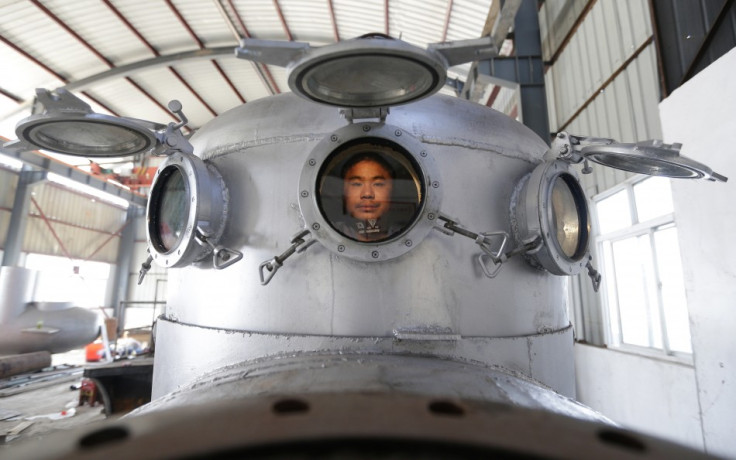Primitive Life Found in Marianna Trench, the Deepest Place on Earth
Researchers find microbes in Mariana Trench, seven miles below sea level in western Pacific

Researchers have discovered microbes - primitive forms of life - alive in the Mariana Trench, which is nearly seven miles (11km) below sea level in the western Pacific and could swallow Mount Everest in its entirety.
A pioneering study has revealed a community of bacteria that have the ability to live at extreme pressures - 1,000 times higher than the pressure at the sea's surface.
During a 2010 expedition to the Mariana Trench, a deepsea submersible robot that can analyse lifeforms brought biological data back to the surface.
"If we retrieve samples from the seabed to investigate them in the laboratory many of the micro-organisms that have adapted to life at these extreme conditions will die due to the changes in temperature and pressure," Ronnie Glud from the Nordic Centre for Earth Evolution at the University of Southern Denmark said.
"Therefore, we developed instruments that can autonomously perform pre-programmed measuring routines directly on the seabed."
The study, which was published in Geosciences, revealed that the trenches contained 10 times more bacteria than the relatively shallow waters around them. Researchers said that the trenches were hotspots for microbial life because they held high amounts of dead and decaying matter. The sediment in which the bacteria were found has built up over tens of thousands of years.
"We have made videos from the bottom of the trench and they confirm that there are very few large animals at these depths," said Glud.
"Rather, we find a world dominated by microbes that are adapted to function effectively at conditions highly inhospitable to most higher organisms."
The discovery is the latest in a number of scientific breakthroughs showing that life can survive in some of the harshest environments on the planet, from the volcanic springs and geysers of Iceland to the intensely cold regions of Antarctica.
© Copyright IBTimes 2025. All rights reserved.






















